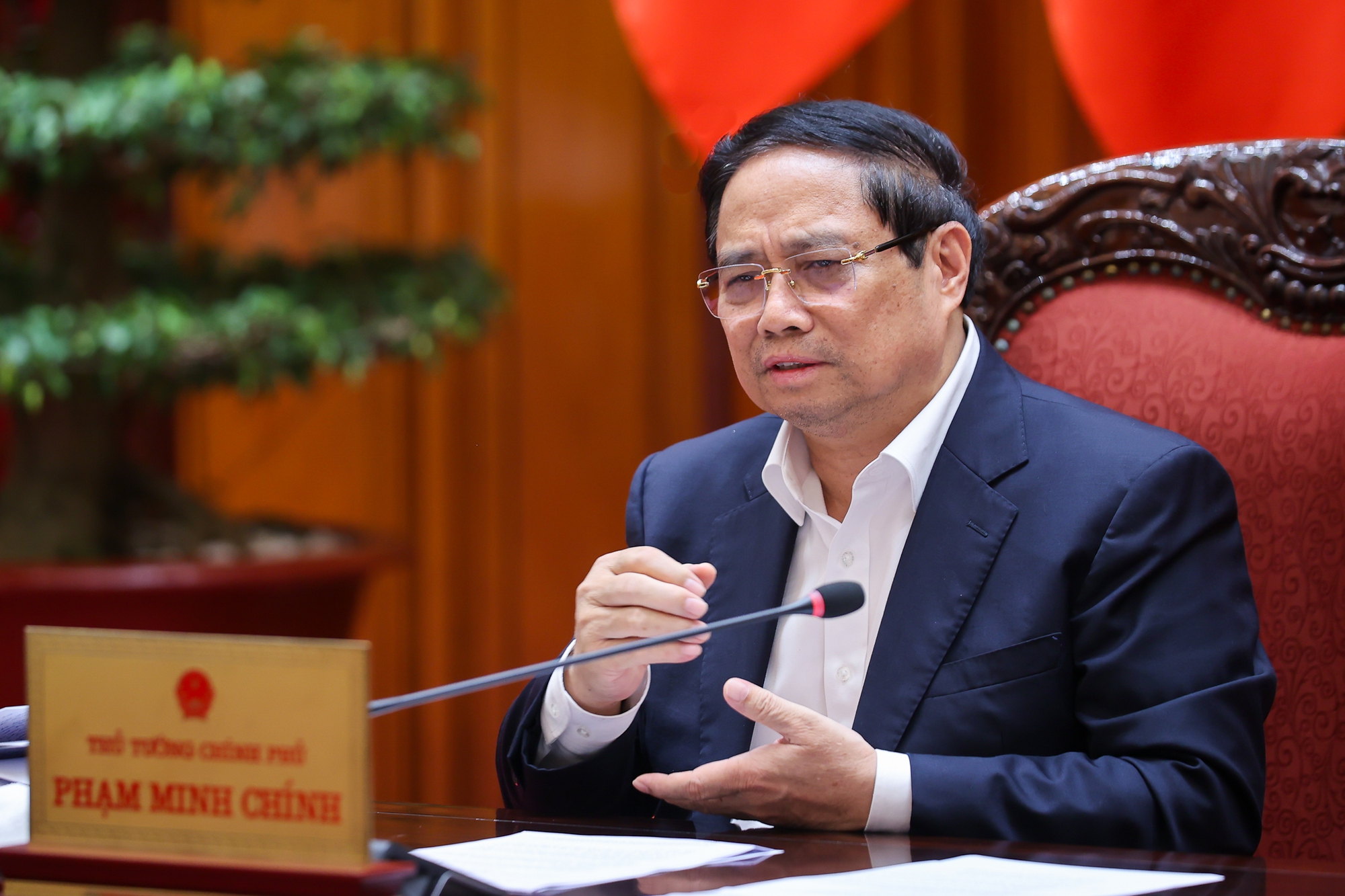At a macroeconomic meeting on 12/9, Prime Minister Pham Minh Chinh acknowledged the numerous external challenges facing Vietnam's economy. These include geopolitical tensions, strategic competition among major powers, slow global growth, US tariff policies, and difficulties faced by several of Vietnam's key trading partners.
Given Vietnam's open economy, the prime minister stressed the importance of flexible, timely, and effective responses to external influences.
In this context, the prime minister said Vietnam's immediate goals remain macroeconomic stability, inflation control, and promoting 8.3% to 8.5% growth this year, while ensuring major balances.
"Vietnam aims for rapid but sustainable development," he stated, urging close coordination among ministries, agencies, and authorities in policy implementation.
 |
Prime Minister Pham Minh Chinh speaking at the macroeconomic management meeting on 12/9. Photo: VGP |
Prime Minister Pham Minh Chinh speaking at the macroeconomic management meeting on 12/9. Photo: VGP
Specifically, monetary and fiscal policies must continue to be effectively coordinated, leveraging fiscal space to support monetary policy. Monetary policy should prioritize exchange rates, interest rates, inflation control, growth promotion, and risk management. It should also strengthen inspection and supervision, ensuring that capital flows into production, business, growth drivers, and priority sectors.
The prime minister also directed the development and improvement of databases, along with the development of capital markets, stock markets, real estate markets, and commodity markets in accordance with market principles.
Accordingly, policymakers need to complete the legal framework for implementing the international financial center, developing the gold market under Decree 232, promoting stock market upgrades, and piloting the digital asset market under Resolution 5. The Ministry of Finance and the State Bank were tasked with promptly issuing guidelines for implementing these decrees and resolutions.
Regarding the real estate market, he called for increasing supply, developing social housing, and striving to complete 100,000 social housing units this year.
For import and export activities, policymakers aim to maintain stability in traditional markets and expand into new markets. This will be achieved by reducing compliance costs and input costs, implementing administrative reforms, developing infrastructure, and enhancing the quality, competitiveness, and added value of goods. At the same time, Vietnam aims to promote selective FDI attraction in priority sectors.
In addition, ministries, agencies, and localities were tasked with increasing capital mobilization and issuing government bonds for key projects and priority sectors such as science, technology, and innovation. They must also continue administrative procedure reform, decentralization, and power allocation linked to resource allocation, enhancing implementation capacity, and perfecting institutions for mobilizing social resources for development.
Phuong Dung












